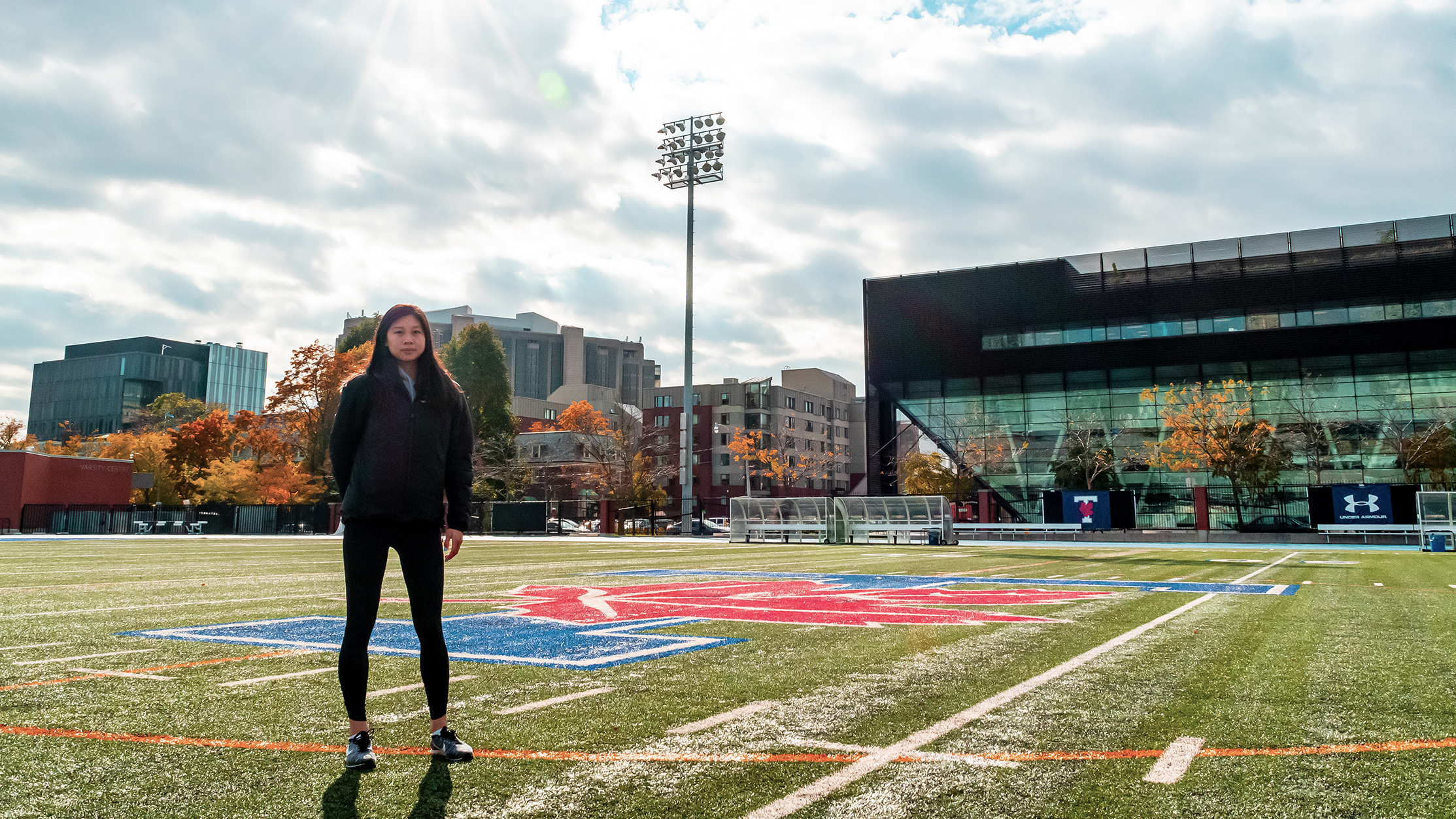Profile:
Bachelor of Kinesiology In-Field Learning
In the Bachelor of Kinesiology (BKin) program, professional placements, termed in-field learning, occur as a part of upper-year KPE academic courses. For these unpaid placements in the BKin program, students are matched with a qualified professional and observe and assist as appropriate in tasks with a kinesiology/physical education focus. Placements are offered in a variety of areas including education, health care, health promotion, research and innovation, and sport, fitness, and recreation. BKin placements are approximately 100 hours in length and run from September to March while students are concurrently in other academic courses. The expectation is that the in-field learning opportunities augment students’ learning in other courses by providing practical experience and exposure that compliments classroom learning and theoretical discussions.

Program Details
Instructor / Program Coordinator(s):
Professor Ashley Stirling, Vice-Dean, Academic Affairs, Faculty of Kinesiology & Physical Education
Profile(s):
External Partners Faculty & Staff Students
Division:
Bachelor of Kinesiology & Physical Education
Benefits to Students:
Students who participate in the BKin in-field learning placements are able to put theory into practice and participate in authentic and relevant interactions with community. They learn through experience and integrate classroom learning with hands-on practice. These placements also allow students to explore different fields of practice and gauge the fit of potential careers paths, while enhancing their personal and professional skills. In-field learning also provides an opportunity for students to identify personal and professional strengths in a job setting and to develop a professional identity while enhancing their resume and building industry and community connections.
Benefits to External Partners and the Community:
The mentors and supervisors who bring students into their workplaces are able to enhance their professional skills and practice while developing coaching and leadership skills. These experiences promote critical reflection and reinforce previous training. Having students on-site can also aid in talent identification and recruitment, allowing professional practitioners the opportunity to connect with the next generation of practitioners through active mentorship. Mentors and supervisors can gain access to the latest research, trends, theories and field approaches and garner cutting-edge knowledge. The Faculty of Kinesiology & Physical Education also coordinates mentor networking events that have the potential to expand the mentor’s own professional network.
Benefits to the University:
In-field learning enhances student learning and experience and provides the Faculty with connections and an opportunity for knowledge exchange with community. This allows for an infusion of industry/community practice and innovation into academic curricula. In-field learning also augments educational offerings and supports student recruitment activities.
Information for Interested Students:
Visit the In-Field Learning page to learn more about the Bachelor of Kinesiology’s In-Field Learning placements.
Advice for Faculty and Staff Interested in Creating a Similar Experiential Learning Opportunity:
The focus should be on developing and facilitating learning experiences of high educational quality. This can only be achieved by grounding the educational experiences in student learning theory, integrating the experiences within the broader academic curriculum, and working collaboratively with community and workplace organizations towards shared objectives in support of student learning and mutual benefit to the student and placement organization.
Some key recommendations include: set learning outcomes and a plan to achieve them, connect the practice with the academic curriculum, take time to reflect, experiment and try new things, consider the learning environment and build in opportunities for feedback and evaluation. For more information see: Stirling, A. & Kerr, G., (2016). Getting coffee versus getting a high-quality work integrated learning experience: Do’s and don’ts for student success. Educated Solutions Magazine (Issue 10, pg. 8-11), Ontario Undergraduate Student Alliance.
In-Field Learning Student (Photo by AdHOME Creative Inc.)
https://experientiallearning.utoronto.ca/wp-content/uploads/In-field-Learning-Profile-Video.mp4
Details
Partnership Based
Curricular
Unpaid
